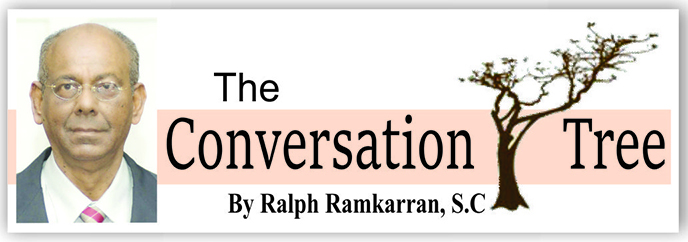Those who advocate changes in the composition and method of selection of the members of the Elections Commission suffer from the ostrich syndrome. They have their heads, like the proverbial ostrich, buried in the sand. They ignore that elections in Guyana are the victim of two enduring Guyanese realities – a history of election rigging and ethno-political demons. That is why even the agreed constitutionally enshrined method after 1992 of choosing the chair and members is now failing.
Prior to 1992 the chair of the Commission was appointed by the Head of State after perfunctory consultation with the Leader of the Opposition. That process gave us Sir Donald Jackson and Sir Harold Bollers, under whom elections from 1968 to 1985 were rigged. Two members of the Commission were appointed also by the Head of State, one in his own deliberate judgment, one on the recommendation of the Leader of the Opposition. All efforts to prevent the rigging of elections were unsuccessful.
For the 1992 elections the PNC administration under President Desmond Hoyte was ‘persuaded’ to accept a change in the composition and method of selection of the chair and members of the Commission, which was subsequently enshrined in the Constitution. As is well known, the chair is selected from six names submitted by the Leader of the Opposition. And the six members are chosen by the President, three in his deliberate judgment and three on the recommendation of the Leader of the Opposition.
The intention was to create an independent constitutional commission. But it has since degenerated into brazen politicking. While elections since 1992, and the role of the chair, have been criticized by the losing party, overseas election observers have repeatedly upheld the validity of elections. In recent times, they have recommended reforms to the selection and composition of the Commission in order to limit the political partisanship. The last chair of the Commission, Dr. Steve Surujbally, has recommended that the members be selected from civil society. This will certainly reduce the political disputes on the Commission. But it is unlikely to reduce the controversy over elections in Guyana.
In his recent press conference President Granger suggested that the Carter formula has exhausted its usefulness and that it creates gridlock rather than consensus. He expressed support for the procedures that are in place for other constitutional commissions, such as the Police Service Commission and the Public Service Commission, to be adopted for the appointment of election commissioners. The President did not specifically mention the chair, but it is assumed that he intends that the chair should also be appointed under this procedure. The Leader of the Opposition quickly rejected this proposal and suggested that the United Nations (UN) should be invited to manage the local government elections. Unfortunately, Mr. Jagdeo did not appear to have given as much thought to President Granger’s proposals as he should have; otherwise he would not have so quickly rejected them. Of course, he can reconsider his rejection.
They are examined below but first I must dispose of the suggestion that the UN’s management of elections would make a difference to the raging controversies that erupt after elections. This is not an issue that I have researched and I don’t know if the UN would undertake such a task. But the PPP would accuse the UN of rigging the elections in APNU+AFC’s favour. If APNU+AFC was in opposition and the PPP was in office, the APNU+AFC would accuse the UN of rigging the elections in the PPP’s favour. There is no escaping the fundamental problem that bedevils Guyana’s public affairs – suspicion bred by the ethno-political demon.
But President Granger’s suggestion is worthy of consideration. The relevant reforms to the Constitution effected in the 2001-2002 period were: 1. A provision for the creation of a committee of the National Assembly to recommend members of a commission for appointment by the President. 2. Provisions for the appointment of some members of the Public Service and Police Service Commissions by the President on the recommendation of the National Assembly. These provisions were given effect to by a Standing Order of the National Assembly providing for the establishment of an Appointments Committee which nominates the members of the commissions for consideration by the National Assembly.
The Appointments Committee has a majority of Government members. The organisations that it would consult to obtain nominations and the nominations themselves made to the National Assembly would therefore by skewed in favour of the Government. The Government majority in the National Assembly would also favour the Government. It is clear that this suggestion by the President would be dead in the water.
If, however, the Government and Opposition can agree that members of the Elections Commission, including the chair, are appointed by the President upon recommendation by a two-thirds majority of the National Assembly, a perfectly reasonable proposition which ensures consensus on the nominations, as is now indirectly provided for in the Constitution, the Opposition should seriously consider this. It would remove the discretionary power currently vested in the President to reject the list of six submitted by the Leader of the Opposition and appoint his own choice, as happened recently, to the dismay of most Guyanese.





